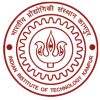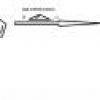 262
2623) -1 ,0 ,2 are the only solutions i think
4)
(\sum{\frac{1}{r}})^{2} = \sum{\frac{1}{r^{2}}} + 2\sum{\frac{1}{rs}}
\sum{\frac{1}{r^{2}}} = (\sum{\frac{1}{r}})^{2} - \frac{2}{rstu}\sum{rs}
\sum{\frac{1}{r}} = \frac{1}{rstu}\sum{rst} = \frac{-3}{2}
\sum{rs} = 0
thus , \sum{\frac{1}{r^{2}}} = (\sum{\frac{1}{r}})^{2} = 9/4
 262
2625) S_{n} = \sum_{n=1}^{\propto }{\frac{(7n+32)(3/4)^{n}}{n(n+2)}}
S_{n} = \sum_{n=1}^{\propto }{\frac{(16n+32)(3/4)^{n}}{n(n+2)}} - \sum_{n=1}^{\propto }{\frac{(9n)(3/4)^{n}}{n(n+2)}}
S_{n} = 16\sum_{n=1}^{\propto }{\frac{(3/4)^{n}}{n}} - 16\sum_{n=1}^{\propto }{\frac{(9/16)(3/4)^{n}}{(n+2)}}
S_{n} = 16 \left[ \sum_{n=1}^{\propto }{\frac{(3/4)^{n}}{n}} - \sum_{n=1}^{\propto }{\frac{(3/4)^{n+2}}{(n+2)}} \right]
S_{n} = 16 \left[ \frac{(3/4)^{1}}{1} + {\frac{(3/4)^{2}}{(2)}} \right] = 16.5
 262
2627) i am getting 3 ( dont have a solid proof though)
 262
2628) P(x) = log2x = a0 +a1x + .... + anxn
now coeff. of x = a1 = P ' (0)
P'(x) = ln2 .1x
P'(0) → ∞
thus a 1 →∞
 1
12)
putting x2+y2=1 in the other equation and factorising gives,
(x+2y-1)(x-1)=0
=> x=1 / 1-2y
since x=1 is already taken so plugging x=1-2y in x2+y2=1 gives the solution (-35,45)
 1
110)right now i think only way is to take general polynomial and compare coefficients on both the sides..lot of casework.
 1
1@aditya,
note that in Q8 its given that p is a polynomial of degree 2011, so it can't be log2x.
maybe we could try something by taking a function
g(x) = p(x) - log2x
but again thats not right..
 262
262yes rishab , i missed that .
 71
71Q4, ALTERNATIVE ,
Replace x → 1/√x , and the coefficient of x3 will give the answer.
 1
1using A.m ≥ H.m for the 2010 numbers apart from x,
[(2012-x)/2010] ≥ 2010/[2012-(1/x)]
(2012-x)(2012-1/x)≥(2010)^2
2012^2 - (x + 1/x) +1 ≥ 2010^2
so max value of x+1/x is 2012^2-2010^2 +1
 1
1as per the problem,
r+s+t+u = -3 ----------(1)
rs +st+tu+ru+su+rt =0 -----(2)
rst+stu+rtu+rsu = -3 -----(3)
rstu=2 ----(4)
(3)/(2)
Σ(1/r) = -1.5
(2)/(3)
Σ(1/rs) = 0
so Σ(1/r^2) = 2.25-2x0 =2.25
 1708
1708Thanks Guys for Nice Discussion..
here is the answers....
\hspace{-16} \bf{(2)\;\; \left(-\frac{3}{5}\;,\frac{4}{5}\right)}$\\\\ $\bf{(3)\;\; x=-1\;,0\;,2}$\\\\ $\bf{(4)\;\; \frac{9}{4}}$\\\\ $\bf{(5)\;\; \frac{33}{2}}$\\\\ $\bf{(6)\;\; \left(-3^{1005}-1\right).x+\left(-2.3^{1005}-1\right)}$\\\\ $\bf{(7)\;\; \frac{8045}{2012}}$\\\\ $\bf{(8)\;\; 2-\frac{1}{2^{2010}}}$\\\\ $\bf{(9)\;\; -665}$\\\\ $\bf{(10)\;\; 10}$
 262
262Man111 please provide solutions for Qs 6 - 10
 1
1@man111
for Q6 for x=-1 answer is 0 which does not match with the answer you have given?
